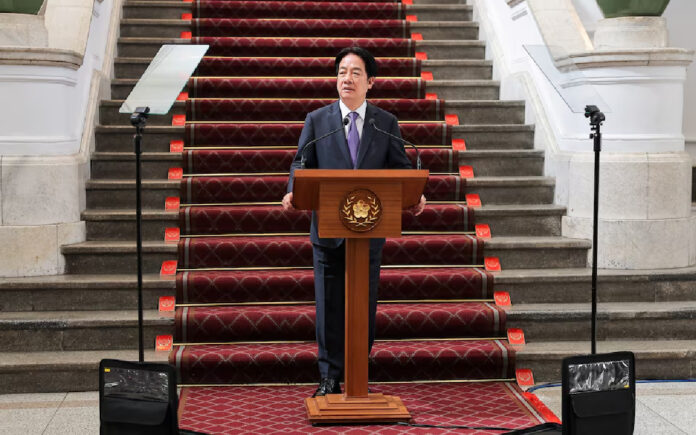Taipei: Taiwanese President Lai Ching-te reaffirmed on Friday his commitment to addressing U.S. concerns over the semiconductor industry, pledging to hold discussions with Washington and increase investments in the country. The announcement follows recent remarks by President Donald Trump, who reiterated his push to bring chip manufacturing back to the U.S., arguing that Taiwan had taken away an industry he seeks to reclaim.
Speaking after a National Security Council meeting at the presidential office, Lai emphasized the importance of global cooperation in semiconductor production.
“The global semiconductor supply chain is an ecosystem in which the division of work among various countries is important,” Lai stated.
“We, of course, are aware of President Trump’s concerns. Taiwan’s government will communicate and discuss with the semiconductor industry and come up with good strategies. Then we will come up with good proposals and engage in further discussions with the United States,” he added.
Taiwan is home to Taiwan Semiconductor Manufacturing Co. (TSMC), the world’s largest contract chipmaker, which supplies major tech firms such as Apple and Nvidia. With AI and high-performance computing driving demand, Taiwan’s semiconductor industry remains a crucial player in global supply chains.
Trade and Investment Ties with the U.S.
Taiwan’s trade surplus with the U.S. surged 83% last year, with exports hitting a record $111.4 billion, largely fueled by high-tech products, including semiconductors. Lai emphasized Taiwan’s role as a key economic partner to the U.S.
“The United States is Taiwan’s largest foreign investment destination, and Taiwan is the United States’ most reliable trade partner,” he noted.
Trump has previously criticized Taiwan over defense spending, arguing that the island should invest more in its own security amid growing military pressure from China, which claims Taiwan as part of its territory.
Also Read | TikTok Returns to U.S. App Stores as Trump Delays Ban
Increased Defense Spending
Acknowledging U.S. concerns over security commitments, Lai reiterated Taiwan’s determination to strengthen its defense capabilities.
“Taiwan must demonstrate our determination to defend ourselves,” Lai stated.
His government is preparing a special budget proposal that would increase defense spending from 2.5% to 3% of GDP this year, reflecting Taiwan’s effort to bolster its military readiness.
Also Read | Pakistan Hopes Champions Trophy 2025 Will Revive Its Global Cricket Image
As Taiwan navigates its strategic relationship with the U.S., its semiconductor industry and defense commitments remain critical factors in maintaining strong bilateral ties.



